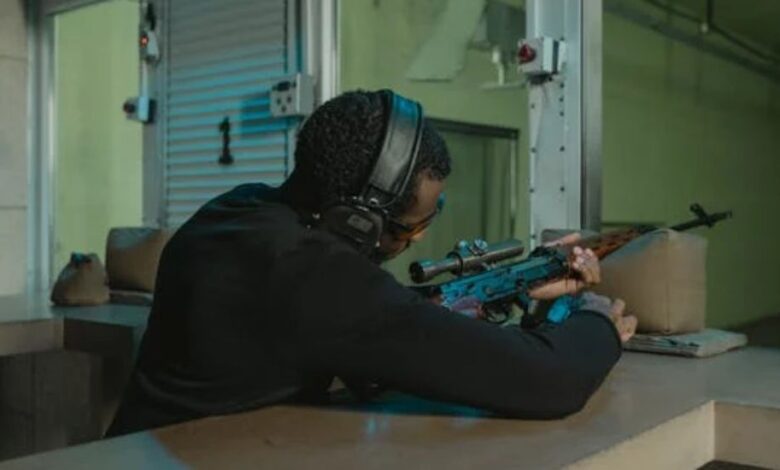Comprehensive Guide to a Firearm Course: Skills, Safety, and Responsibilities

A firearm course is an essential training program designed for individuals interested in learning how to handle, operate, and own firearms responsibly. Whether you are a first-time gun owner or someone looking to refresh your skills, these courses provide the knowledge and techniques necessary to use firearms safely and effectively. With increasing public interest in personal safety and home defense, a firearm course offers structured, practical training to help participants develop the confidence and competence required to operate a firearm under various scenarios.
Importance of Firearm Safety Training
One of the most critical components of any firearm course is safety. The safe handling and operation of firearms are paramount in preventing accidents and ensuring that participants can use their weapons responsibly. Firearm instructors teach the foundational safety rules, such as always treating firearms as if they are loaded, keeping the muzzle pointed in a safe direction, and maintaining proper trigger finger discipline. These rules, combined with real-life examples of firearm accidents and how they can be prevented, form the core of the training.
Moreover, courses emphasize the importance of secure firearm storage, teaching participants how to store their firearms safely at home or when traveling. This ensures firearms are kept out of reach from unauthorized users, particularly children, reducing the risk of accidents. Proper safety techniques also prepare participants for various scenarios, from hunting to self-defense, where quick decision-making and careful firearm handling are essential.
Legal Responsibilities and Knowledge Gained in a Firearm Course
Owning and using a firearm come with a range of legal responsibilities. Each state and country has its own laws governing firearm use, ownership, and carry permits, which can be complex and vary widely. A comprehensive firearm course includes an overview of these legal requirements to ensure participants are fully informed of their rights and obligations. For example, many courses cover the intricacies of self-defense laws, regulations on concealed carry, and the legal aspects of using deadly force.
By understanding these legal frameworks, participants can make informed decisions that protect them from potential legal troubles. For example, knowing when it is legally permissible to draw or use a firearm in a self-defense situation is crucial for avoiding unnecessary legal consequences. In this way, firearm courses act as both an educational tool and a means of encouraging responsible firearm ownership.
Building Confidence and Competence Through Training
Handling a firearm for the first time can be intimidating for many individuals. A firearm course helps build confidence by providing hands-on training in a controlled, safe environment. Instructors focus on fundamental skills such as proper stance, grip, aim, and breathing techniques, all of which are critical to achieving accuracy and maintaining control over the firearm.
Many firearm courses offer time at a shooting range where participants can practice shooting under the supervision of experienced instructors. This practical application allows individuals to improve their accuracy, develop a sense of control over the firearm, and become familiar with how different firearms operate. Confidence grows with competence, and participants often leave these courses feeling more prepared to use their firearms safely and effectively in real-world situations.
Self-Defense and Emergency Preparedness
For many individuals, the motivation behind enrolling in a firearm course is to learn how to protect themselves and their loved ones. Firearms are powerful tools for self-defense, but they must be used correctly to be effective. A good firearm course teaches the skills needed to navigate high-pressure situations, such as home invasions or public threats. Tactical training, situational awareness, and decision-making under stress are often key components of these courses, giving participants the knowledge they need to make sound judgments in potentially life-threatening situations.
By simulating real-life emergency scenarios, firearm courses provide valuable practice for individuals looking to enhance their preparedness. Participants learn how to remain calm, assess the situation, and determine whether using a firearm is necessary. This type of training is especially important for concealed carry permit holders, who may find themselves in a position to defend themselves or others in public spaces.
The Role of a Firearm Course in Lifelong Learning
A firearm course is not just a one-time event; it’s the beginning of a lifelong journey in responsible gun ownership. In addition to basic courses, many firearm instructors offer advanced training that delves deeper into specialized areas such as defensive shooting, marksmanship, or competitive shooting. Continuing education in firearm handling helps individuals stay up to date with the latest safety practices, legal developments, and techniques for maintaining and improving their shooting skills.
Many advanced courses also focus on specific firearm types, such as handguns, rifles, or shotguns, giving participants the opportunity to expand their skill set across different platforms. In this way, firearm training becomes an ongoing process, helping gun owners develop a deep understanding of their weapons and the responsibilities that come with owning and using them.
Emotional and Physical Discipline
Handling firearms is not just about mechanical skills but also about emotional and physical discipline. Firearms training teaches participants how to stay calm and focused in high-stress situations, an essential skill for anyone who may find themselves using a firearm in self-defense. The mental discipline gained from learning to control fear, manage adrenaline, and make rational decisions under pressure is invaluable, not only in firearms use but in other aspects of life.
Furthermore, shooting is a physically demanding activity that requires strength, fine motor skills, and endurance. Firearm courses often include drills that enhance physical discipline, such as stance correction, recoil management, and accuracy over long periods. This combination of mental and physical training makes firearm courses valuable for those looking to improve both their shooting skills and their overall well-being.
Fun and Community Building
Despite the seriousness of firearm safety and self-defense, many people find shooting to be an enjoyable and rewarding hobby. Firearm courses often foster a sense of community, connecting participants with others who share an interest in responsible gun ownership. Shooting ranges and firearm clubs provide opportunities for continued practice, socializing, and even participating in shooting competitions.
Moreover, many courses encourage participants to bring family members, friends, or colleagues, creating a shared learning experience. These social aspects of firearm training help build a culture of safety, responsibility, and camaraderie, which benefits the wider community as well.
Conclusion: The Value of Firearm Training
A firearm course is an essential investment for anyone interested in owning or using firearms. From teaching safety protocols to building confidence and competence, these courses equip individuals with the tools and knowledge needed to handle firearms responsibly. The legal, emotional, and physical aspects of firearm use are integral to developing a well-rounded understanding of gun ownership. Whether for personal protection, recreational shooting, or professional training, enrolling in a firearm course is a crucial step toward ensuring safe and responsible firearm usage for oneself and the community at large.



